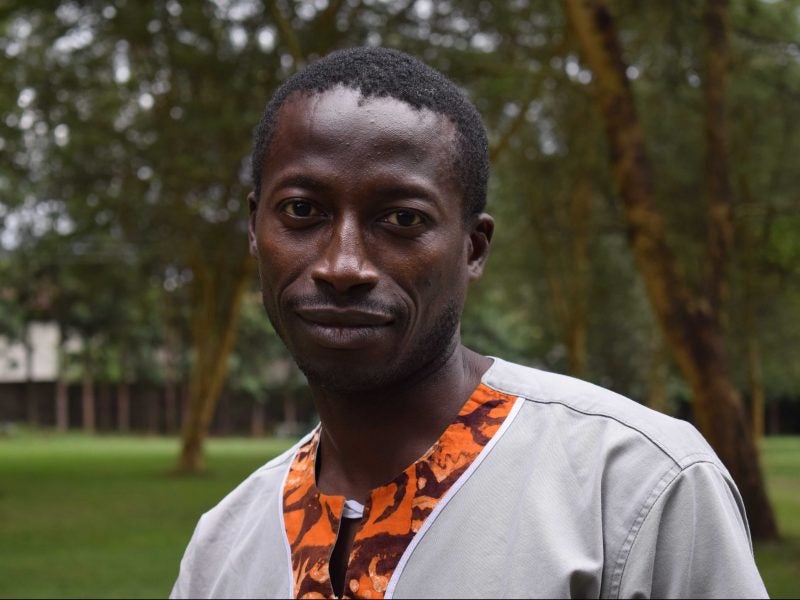
It has been five years since the UK oil and gas explorer Cairn Energy chanced its arm and headed to the waters off the West African seaboard.
The rest, of course, is history, with the group striking upon one of the largest offshore oil reserves in the world, 100km from the mainland of Senegal. Since then, Cairn has been joined by a number of its peers – including Total and BP – looking to delve deeper into the region’s hydrocarbon trove.

Discover B2B Marketing That Performs
Combine business intelligence and editorial excellence to reach engaged professionals across 36 leading media platforms.
Yet while the governments of Senegal and Mauritania appear not to be able to hand out licenses to international explorers quickly enough, there are concerns among environmentalists that this increase in oil and gas activity comes at a grave cost to local wildlife.
This has led to the launch of the Cobia initiative. Funded by the Switzerland-based Mava Foundation, which provides backing to conservation projects around the world, the initiative’s aim is to improve the management of the marine environment impacted by current offshore activity in West Africa. It currently covers the countries of Senegal, Mauritania, Sierra Leone and Guinea-Bissau.
Deeply concerned: BirdLife’s qualms with exploration activity
BirdLife Africa – the African arm of global conservation NGO Birdlife International – is one of the project’s various partners. In spite of its name, the charity’s work does not cover ornithological species only, extending to all aspects of marine biodiversity.
BirdLife has been deeply concerned by the developments it has witnessed off the coast of West Africa at the hands of oil and gas explorers, says Paul Silai Tendeng, the group’s regional oil and gas project manager.

US Tariffs are shifting - will you react or anticipate?
Don’t let policy changes catch you off guard. Stay proactive with real-time data and expert analysis.
By GlobalData“Offshore oil and gas activities pose a threat to the conservation of our marine and coastal ecosystems, as there are risks of accidents whose consequences can be very harmful to the environment,” he explains. “Moreover, the activity itself has negative consequences for the environment in which it develops because it destroys habitats.”
According to Tendeng, the threats posed by hydrocarbon projects are also all-encompassing, from the exploration phase right through to the closure of a site.
“During the exploration phases, for example, cetaceans are very sensitive to the waves, while pipeline construction can destroy fragile and sensitive habitats,” he says.
“There is also chronic pollution, due to possible accidental leakage, which leads to the presence of micro-contaminants whose long-term consequences on marine ecosystems can affect other activities, such as fishing and – by extension – people through the consumption of contaminated fish.”
From whales to coral reefs: the spectrum of jeopardy
BirdLife has identified a broad cross section of wildlife and eco-systems that it claims are all highly endangered. This includes whales, dolphins and porpoises (particularly during exploration periods), as well as sea turtles and manatees. Mangrove ecosystems, coral reefs and seagrasses are also at risk.
“The upwelling cell, off Nouahadibou in Mauritania; the cold-water coral reefs off Nouakchott; the various seamounts; the estuarine areas of Saloum in Senegal; the Bijagos archipelago in Guinea Bissau; Sierra Leone’s estuaries – they are all threatened by oil and gas activity,” states Tendeng.
“Although it may not seem so obvious, seabirds are also especially fragile to oil and gas activities. Not only do they suffer from pollution, but the facilities pose a danger in themselves. Birds are at risk of colliding with platforms or may be disoriented by their light and gas flaring.”
In September, a number of conservation experts, researchers and Cobia partners descended upon Dakar, the Senegalese capital, for a three-day workshop, hosted by BirdLife. Among the points of discussion was how an improved collation of coastal biodiversity data could plug current research gaps.
“There is a need for quality data,” says Tendeng. “Also, the contribution of all actors for validation and sharing of existing data at the national and international levels is critical. There are quite a lot of experts working together so we need to coordinate all these efforts.”
Plugging the research gap: the potential of scientific mapping
One avenue BirdLife and its partners are keen to explore is mapping priority conservation areas, which they believe could create a key decision-making tool.
“We are currently collecting data from the marine and coastal ecosystems of West Africa to develop a map of sensitive areas that presents the vulnerable species and ecosystem known,” says Tendeng.
“This means a map where we will detail the main areas that may be in danger due to the oil and gas industry. A good scientific base will support appropriate decision-making.”
Representatives from the governments of Senegal, Mauritania, Sierra Leone and Guinea Bissau have also participated in some of Cobia’s recent workshops and discussions, reveals Tendeng. This would at least suggest that the region’s administrations are aware of their environmental obligations. But what of the oil and gas players?
“A representative from BP [the group has an exploration permit for a site discovered between the coasts of Mauritania and Senegal] attended one of these meetings and shared information with participants on the different stages of the gas exploitation activity,” he says.
“So far, we cannot ensure that they take their responsibilities more seriously now, but our goal is be able to affirm this in the near future.”
Yet, while companies are obliged to carry out environmental studies, the responsibility for curbing some of the more destructive aspects of oil and gas exploration ultimately falls on the shoulder of governments.
“We are in continuous conversations with governments – they are the ones who can ensure companies enforce management plans and adhere to regulations.”





